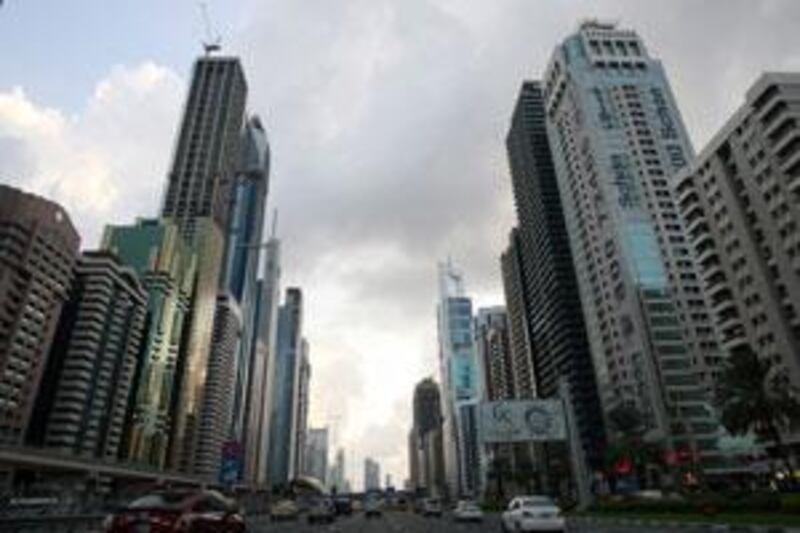DUBAI // Landlords will be allowed to increase rents by up to 20 per cent next year, the Dubai property regulator has announced. The biggest increases could fall on those who have taken advantage of sinking rents to move into apartments at well below half, or less in some cases their peak prices. Also likely to be hard hit are long-term tenants who were protected during the boom years by a annual five per cent cap on increases.
For 2010, the maximum permitted increases will vary according to the difference between the assessed rental value and the actual rent. Those with the biggest disparity will be subject to the biggest increases. Rera, the property regulator, has not yet announced the assessed values, although it has said they will reflect market conditions. Tenants who already pay within 25 per cent of the suggested valuation of their property will have their rent capped, with landlords unable to increase the rent for 2010.
But those who pay considerably less than Rera's estimate will face steep rises as the regulator looks to stabilise the market and bring all property closer to valuations. Andrew Chambers, a consultant to Asteco, a property sales, leasing and management company, said the index was useful but that the market itself ensured that landlords would offer value and flexibility to tenants. "I don't see anybody using it as leverage or a way to increase rents in any form because there is more stock coming on all the time," he said.
Properties at more than 56 per cent below the suggested index level will be subject to a 20 per cent increase. Those between 46 per cent and 55 per cent will have the increase capped at 15 per cent, and those between 35 per cent and 45 per cent will be limited to a 10 per cent increase. Properties rented for between 26 per cent and 34 per cent below valuation will be subject to a five per cent increase. This means a tenant paying Dh70,000 (US$19,000) for a two-bedroom apartment in the Greens, valued at Dh120,000, will be subject to a 10 per cent rental increase, to Dh77,000. The rationale is that after a certain period the rent will catch up with its valuation, without imposing an unmanageable price increase.
The rental index, introduced in January and revised in April, was intended to protect residents from landlords' inflating rent to unrealistic levels. But Rera's original index was criticised by property analysts for including figures that were up to 30 per cent above the market valuation. The April revision sought to reflect the slump in rents and was praised by experts for more accurately reflecting market prices. Historically a five per cent rent cap protected long-term tenants from the steep upward trend in the property market.
This caused resentment among landlords who claimed they were being prevented from benefiting from the boom or releasing their property to new tenants at a much higher valuation. The new system will enable landlords to redress this imbalance but crucially does not allow them to raise the value to the Rera evaluation, only to bring it closer to it. Several real estate companies said they would not comment until they could assess how closely the Rera index valuations compared with the market.
Mr Chambers said the Rera guidelines were now an established part of the rules and regulations but that ultimately prices would always be determined by market value. "I don't think it will have any effect directly in the next few months as the market is driving it," he said, adding that landlords were becoming more flexible, offering rent freezes and accepting multiple cheques in a year. @Email:tbrooks@thenational.ae






